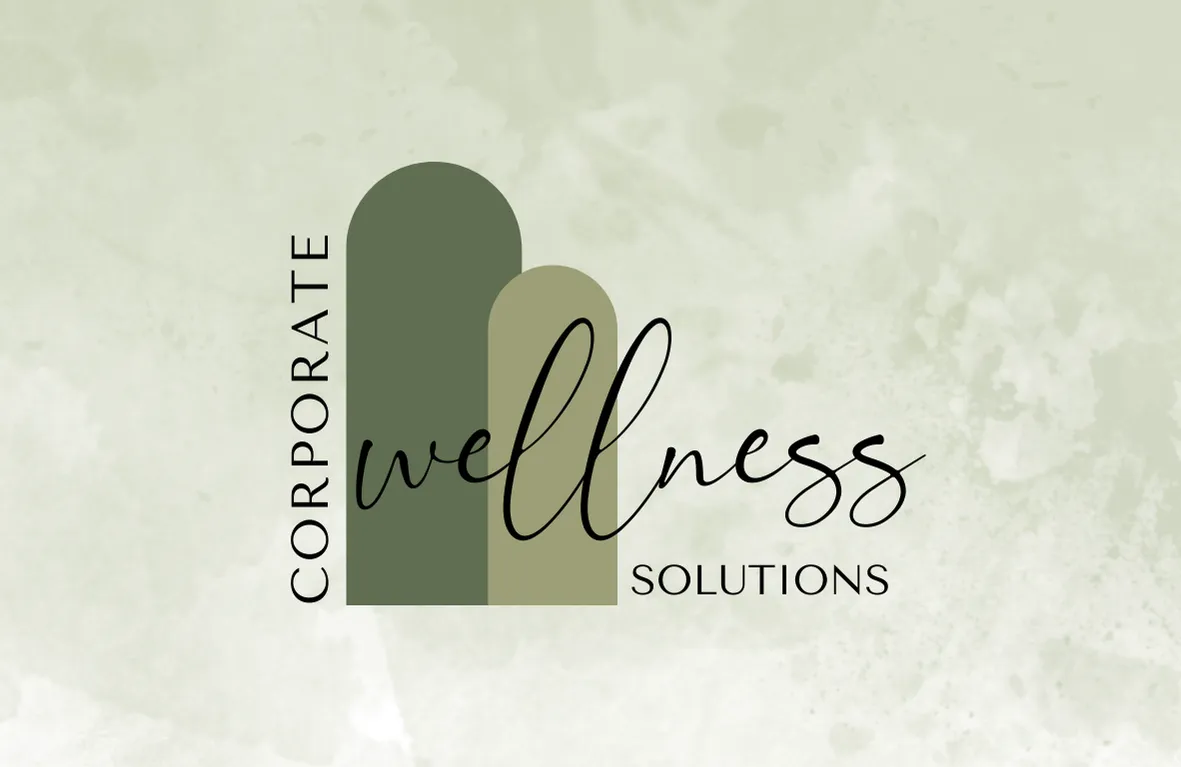Employer -Menopause friendly workplaces
Get Accredited
Welcome to the
Women’s Wellness Hub

How to make work menopause-friendly: don't think of it as a problem to be managed
For many, menopause conjures up feelings of embarrassment, hot flushes, mood swings and sleep disturbance. It doesn’t usually conjure up thoughts about the workplace.
Stressful work environments can exacerbate menopausal symptoms. Women who enjoy higher levels of support, on the other hand, report lower levels of menopausal symptoms.
Some employers think menopause hurts productivity and is therefore a reason to avoid employing older women. But not every woman experiences menopausal transition the same way and it is wrong to assume it will always have a negative impact on wor
More and more Australian women are facing a silent career killer. It can increase their dissatisfaction with work, their absenteeism and their intention to quit their jobs. Menopause is one of the last great taboo subjects in the workplace but its impacts are great – and it’s time we talked about it.
Menopause typically occurs in women around 51 years of age. Prior to this women also pass through a period of peri-menopause where symptoms are apparent. These include fatigue, hot flushes, sleep disruption, irregular and unpredictable bleeding, urinary issues and mood swings. In all, menopausal symptoms generally last from four to eight years.
This directly relates to the workforce in Australia because the participation of women over 45 years of age is steadily increasing, particularly in the 55-64 age group. Between 1999 and 2012, this group’s workforce participation rate grew by a staggering 23%
.
What do we know about menopause and work?
A large study of women over 40 working at Australian universities was conducted in 2013-14. It’s one of the few to examine this issue locally.
This research showed that menopause did not necessarily affect job performance. But there was a strong link between the severity of symptoms and reduced engagement and satisfaction with work – as well as a higher intention to quit work.
Unsurprisingly, these reactions can have negative impacts on career aspirations. A 2013 report, Older Women Matter: Harnessing the talents of Australia’s older female workforce, examined the issue of attracting and retaining older women in Australian workplaces. While not directly about menopause, this report argued that employers could reap significant benefits by examining their strategies and policies for employees in this demographic.
Studies overseas, particularly in the UK, have more comprehensively explored the link between workplace performance and menopause. It is generally agreed that women are often able to conceal their symptoms and manage their workloads. Yet they often do so at their own personal expense.
One study found that only a quarter of respondents felt comfortable enough to discuss their menopausal symptoms with their line managers. Most believed it was a personal and private matter. Other reasons for non-disclosure included the belief that it had no impact on their work, and their manager being male and being embarrassed.
The consensus then is that this important group of employees need support so that menopausal symptoms can be discussed and managed. That in turn means employees can be retained and developed. But how do employers make this happen?
Cultural influences
Features of the workplace culture and managerial styles stressful work environments can exacerbate menopausal symptoms. Women who enjoy higher levels of support, on the other hand, report lower levels of menopausal symptoms.
For some women menopause will present significant and long-term health episodes and may be covered under disability discrimination employment laws. It is also important to note that any medical information provided by a staff member is likely deemed sensitive information under the Privacy Act.
For other women, menopause was just seen as part of a broader “time of life” when many women feel energised, more free from caring responsibilities and ready to go in terms of their career.
Practical steps
There are a number of practical steps employers can take to create menopause-friendly workplaces:
Fans and easy access to temperature control were a common recommendation from our research.
Ability to work flexibly or from home during extreme weather or times when they were experiencing symptoms such as excessive bleeding or migraines.
Culturally supportive so women feel like they can reach out for support when needed.
Information ;provided about menopause – for both men and women – should be part of organisational health and wellness agendas. Book in well trained menopause trainers through Corporate Wellness Solutions. www.corporatewellnesssolutions.com.au
Cultural shifts
A shift in social attitudes can make menopause a positive experience,
Managerial systems should put menopause on the workplace agenda rather than considering it only when it becomes an “issue” or “problem”. Including menopause in occupational health and safety and human resource policies can also challenge hidden biases.
Finally, line management training is vital. All too often how menopause is dealt with in the workplace comes down to a supervisor’s personal experience and understanding. When managerial responses remain ad hoc and unpredictable, it is not surprising that 60% of women feel unable to discuss their menopausal symptoms with their line manager.
Don’t manage menopause
These steps are not just about alleviating symptoms. They are about avoiding signalling that women of a certain age are an inconvenience or less valued as employees.
So want to know the best way to support menopause in the workplace?
Provide ways to start the conversation in a positive way.
Encourage open and honest communication that does not automatically lead to discussion of performance.
Think about proactive practical steps that can accommodate symptoms.
It is about enabling a positive and productive work environment for those going through menopause, not “managing” menopause and its symptoms as a problem.
Get help to become a Menopause Accredited Business
Corporate Wellness Solutions is one of the leading Australian wellness organisations equipped to help businesses ensure better support for their staff experiencing perimenopause or menopause. They provide practical and expert training and resources to businesses to provide support to staff
experiencing menopausal symptoms at work and help managers and HR professionals to understand how they can provide the right support to their workforce. They help workplaces create an environment where everyone enjoys equal opportunity to achieve their best at work regardless of age, gender, or experience of menopause. Corporate Wellness Solutions compliance team also ensure compliance obligations are met and works with business to attain menopause friendly accreditation, which has enormous value on culture, staff retention, staff productivity and morale.
Book a menopause wellness education session through highly skilled trainers - www.corporatewellnesssolutions.com.au
GET YOUR BUSINESS MENOPAUSE ACCREDITED NOW.


Women's Wellness Hub Directory
Our Ambassador and Panel Members

Medically Induced Menopause
There is a dire need in Australia to find more effective ways to support women experiencing medically induced menopause due to cancer treatments, preventative surgeries or other medically required pro... ...more
Family Counselling ,Womens wellness WW Peri/ Menopause Rural Online Support Services &Corporate Wellness
November 29, 2024•3 min read

Tackling Stress Head On
We cannot avoid stress, but we can build our tool box up with some effective strategies to use when the stress levels start to climb. ...more
Separation Support ,Family Counselling Womens wellness WW Mental & Emotional Wellness Men's Mental Wellbeing &Corporate Wellness
November 19, 2024•3 min read

Time to disconnect from work?
Disconnecting from work is critical to good mental and physical health. ...more
Family Counselling ,Men's Medical Health &Corporate Wellness
October 05, 2024•2 min read

Non judgmental listening
It’s hard to be nonjudgmental all the time. We automatically make judgments about people from the minute we first see or meet them based on appearance, behavior and what they say. And that’s okay. Non... ...more
Separation Support ,Family Counselling WW Mental & Emotional Wellness WW Support and Connections Men's Podcast and Resources &Corporate Wellness
October 05, 2024•2 min read

What is Domestic Violence?
Domestic violence can impact anyone, regardless of age, ability, ethnicity, sexual orientation, gender, location and socio-demographic groups. ...more
Separation Support ,Family Counselling DV What is Domestic & Family Violence? &Corporate Wellness
April 19, 2024•9 min read
This site is brought to you by Family Counselling Support Network
Book in directly with one of our professionals today

We are here to help

We are committed to protecting your personal information and respecting your privacy. This website uses cookies to analyze website traffic and optimise your website experience. By accepting our use of cookies, your data will be aggregated with all other user data.
DISCLAIMER: The material contained on this website is for general educational and information purposes only and is not a substitute for professional legal, financial, medical or psychological advice or care. While every care has been taken in the information provided, no legal responsibility or liability is accepted, warranted or implied by the authors or Family Counselling Support Network and any liability is hereby expressly disclaimed. For specific advice please contact us at [email protected]. All information contained on the website remains the intellectual property of Family Counselling Support Network and is for your personal educational use only. The information must not be reproduced or distributed without the express permission of Family Counselling Support Network.
Family Counselling Support Network acknowledges and respects the First Nations Custodians of the land where our offices stand, and where we work to help Australians. We pay respects to their Elders, past present and emerging, lore, customs and creation spirits. We recognise that these lands have always been places of ceremony, teaching, research and learning, and we acknowledge the important role Aboriginal and Torres Strait Islander peoples play in our community.
We are committed to providing an inclusive and accessible environment where people and communities of all identities and backgrounds are accepted, safe and celebrated.
Privacy Policy | Terms and Conditions


















